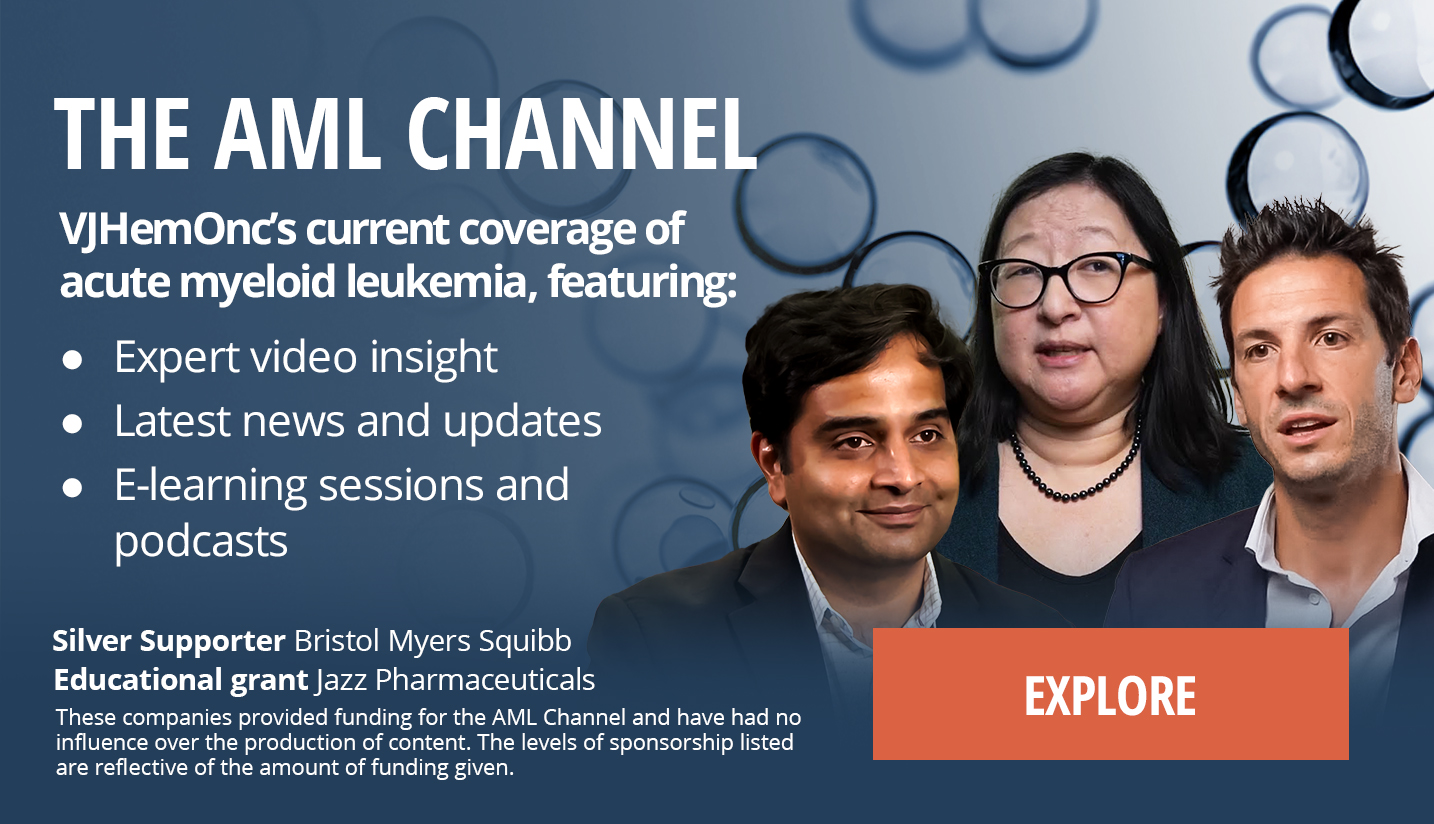My name is Eva Telzerow and I work at the LMU University Hospital in Munich. And my name is Klaus Metzeler from Leipzig University in Germany. We’re going to present you our new study on long-term survivorship outcomes in AML. So what we’ve done in the past is we’ve done a study including more than 400 survivors of AML that survived longer than five years after the initial diagnosis...
My name is Eva Telzerow and I work at the LMU University Hospital in Munich. And my name is Klaus Metzeler from Leipzig University in Germany. We’re going to present you our new study on long-term survivorship outcomes in AML. So what we’ve done in the past is we’ve done a study including more than 400 survivors of AML that survived longer than five years after the initial diagnosis. We looked at their quality of life, life satisfaction, and a whole array of other factors that could be influenced by their diagnosis even five years after, including things like parenthood, including things like work situation, social situation, and whatnot. But doing the study, we came up short on a couple questions on a couple research topics. So we wanted to do an even more in-depth approach this time to answer questions that are left open in past research. So right now what we conceptualized is a multi-part study. Firstly, we’re going to recruit patients again, asking them by a questionnaire to submit data on their quality of life, on anxiety and depression, working situation, fertility, socioeconomic status and so on. And after the patients fill that out, the patients will be asked to provide follow-up data in the clinical setting. So if they go to a follow-up appointment, they are supposed to supply blood samples and they’re going to be seen by a physician. If they have done that in the past, we can use that data or they will be invited into the hospital where they were treated for the AML to retrieve those data. And then additionally, Klaus Metzler is going to tell you more about the other parts that we’re going to include in the study. Because we’re really trying to get a comprehensive picture of the long-term health situation of these AML survivors. We will also collect biomaterial samples, specifically blood samples, and look for factors such as clonal hematopoiesis, that is genetic changes in the blood cells, which may be related to the leukemic disease or they may actually originate during AML treatment. And we will investigate if these genetic changes have any association with somatic long-term and late effects of acute myeloid leukemia. And then our study, of course, will still include a select group of survivors who are willing and able to participate in our study. And to get an even more comprehensive picture, we also engage the help of a health economics specialist who has access to a large data set of health insurance claims data and that will give us yet another angle to look at the health consequences of AML patients based on their healthcare utilization as documented in these data sets. So overall with that we hope we will get a really comprehensive view of the late and long-term effects of AML, both on the psychosocial and on the somatic level. And if you are involved in a group or in a research project that has similar interests, if you’re interested in getting in touch and potentially cooperating with us, feel free to get in touch and let us know. Thank you very much.
This transcript is AI-generated. While we strive for accuracy, please verify this copy with the video.















